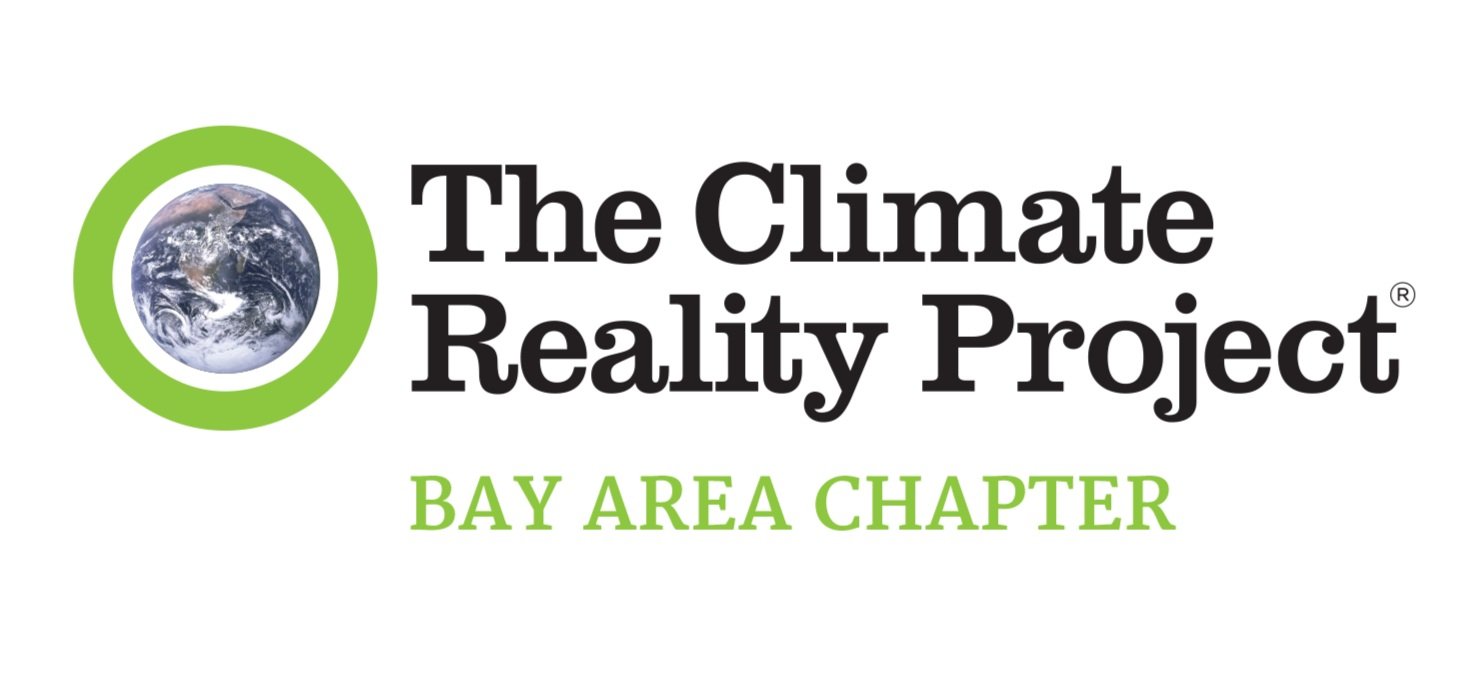“Everyday Climate Champions” Podcast Episode 15: Hands-On Climate Education and Restoration in Elementary Schools
Written by Keith Nickolaus
Learn more about Climate Reality Bay Area’s podcast, Everyday Climate Champions here.
“I would say to just jump in, 'cause there's so much out there. Even if you feel like you don't really know what you're doing, take that step.” - Angela Werner
Listen to Episode 15: here
Transcript: here
Guests: Angela Werner, 3rd grade teacher and Sherlyn Deras Ramos, 4th grade student
Host: Sean Mendelson
Summary:
Recently, California passed an important climate education bill, AB 285. So it’s a perfect time to learn from Angela Werner, a 3rd grade teacher at McDowell Elementary School in Petaluma, about her work on the frontlines of climate education. Along with her former student, 4th grader Sherlyn Deras Ramos, Angela shares how they engage in environmental activities: creek restoration, wetland visits, gardening at school, and more. This podcast episode highlights how outdoor, hands-on learning can prepare young students to be future leaders in tackling climate issues. It's an inspiring call for more schools to embrace nature-based education.
Why This Matters:
Teachers are uniquely positioned to help young people develop a connection with nature and a love for the outdoors.
With the recent passage of California's AB285, mandating climate change education, we need to hear more from educators already on the forefront of climate education. They can encourage more educators, parents, and students to find ways to get involved.
Hands-on nature-based learning helps young people discover ways they can make a difference in protecting the planet, and learn what needs changing right where they live.
Key Takeaways
Educator Angela Werner explains how teachers can learn from local experts to include nature-based environmental lessons in their classrooms.
While some “city kids” in the Bay Area are not comfortable in outdoor settings or exploring nature up close, nature-based learning offers a way to help young people discover the joys of outdoor settings and become more observant of nature.
Ms. Werner describes how a nature-based curriculum helps students discover their own capacity for environmental stewardship in their own local communities, whether it’s cleaning up litter, improving wildlife habitats, or restoring a creek.
4th grade student Sherlyn Deras Ramos shares her enthusiasm about her nature-based class experiences - a sentiment held by many of her classmates.
Several community-based organizations play an integral role in helping teachers develop their own climate change curricula, such as STRAW (Students and Teachers Restoring a Watershed), and SEEC (the Sonoma Environmental Education Collaborative).
Ms. Werner and other teachers at McDowell Elementary School in Petaluma get help providing environmental education experiences from the IOOBY program (In Our Own Backyard). IOOBY was designed by Land Paths, an environmental education nonprofit, and includes four field trips aligned with the changing seasons.
McDowell Elementary School also partners with the Garden of Eatin’ program to create community gardens that double as nature-based learning classrooms.
Teachers at McDowell Elementary start by helping ensure all students feel safe and excited to be in natural, outdoor settings, followed by tiered activities, and culminating in hands-on, student-centered environmental stewardship projects.
How to Take Action
Parents, kids, teachers, PTAs, community foundations, climate activists, and climate-focused nonprofits all have a role to play in helping educators and schools implement climate change curricula beginning in 2024-25, as mandated by California’s AB285.
Learn more about AB285, its objectives and mandates, and why it’s important, and share what you learn with other parents and educators.
If you are a teacher who wants to give this kind of curriculum a try, Ms. Werner encourages you to “just jump in ‘cause there’s so much out there” to help you get started, emphasizing that she’s found all of her program partners very welcoming, supportive, and eager to work with kids and teachers.
If you have kids in school, find out how you can support their teachers as they seek to augment climate change learning in response to AB285.
Help your local school leaders, PTA, and school boards understand the value, importance, and directives they need to know about with regard to AB285.
Connect with and support a nature-based or climate change education organization in your own community, or find out more from any of the organizations mentioned by today’s guest (see related websites below for links).
Related Websites:
In Our Own Backyard, which provides four guided field trips per school year to nearby nature scapes, focuses on exploration & discovery, animal habitats, watersheds, and stewardship: https://www.landpaths.org/iooby/
SEEC, Sonoma Environmental Education Collaborative, promotes climate education programs throughout the county: https://sonomacountyee.org/pathways-project
Petaluma River Cleanup coordinates an annual community event: https://cityofpetaluma.org/event/petaluma-river-clean-up/
Petaluma Wetlands Alliance supports Shollenberger Park and other wetlands in the region: https://petalumawetlands.org/
Garden of Eatin’ teaches children to make healthy food choices through a comprehensive, hands-on garden curriculum: https://nbcc.net/garden-of-eatin/
Use the link below to learn more about California’s recently passed AB285, which requires K-12 schools to incorporate climate change education into the science curriculum: https://leginfo.legislature.ca.gov/faces/billTextClient.xhtml?bill_id=202320240AB285
Contact Us: Do you know a Bay Area-based Everyday Climate Champion? We’d love to interview them! Or just want to share a comment or hear about new episodes?
Get in touch: crba.eccpodcast@gmail.com
Get notified of new episodes HERE
Podcast Production Team: Executive Producer: Dalya Massachi; Sound Designer: Trevor Skerbe; Co-Hosts: George Dy, Ellisa Feinstein, Isabella Genereaux, Sean Mendelson, Hasini Parepalli; Logo Designer: Gabriela Vargas
